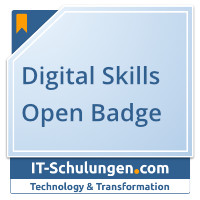Implementing Cisco Quality of Service (QOS)
Ziele
After completing this course the student should be able to:
- Explain the need for QoS, describe the fundamentals of QoS policy, and identify and describe the different models that are used for ensuring QoS in a network
- Explain the use of MQC and AutoQoS to implement QoS on the network and describe some of the mechanisms used to monitor QoS implementations
- Given a converged network and a policy defining QoS on the network and describe some of the mechanisms used to monitor QoS implementations
- Use Cisco QoS queing mechanisms to manage network congestion
- Use Cisco QoS congestion avoidance mechanisms to reduce the effects of congestion on the network
- Use Cisco QoS traffic policing and traffic shaping mechanisms to effectively limit the rate of network traffic
- Given a low speed WAN link, use Cisco link efficiency mechanisms to improve the bandwidth efficiency of the link
- Describe the recommended best practices and methods used for end-to-end QoS deployment in the enterprise
Weiterführende Kurse
- Cisco Expert Level Training for CCIE Routing and Switching Advanced Workshop 1 (CIERS1)
- Cisco Expert Level Training for CCIE Routing and Switching Advanced Workshop 2 (CIERS2)
Zielgruppe
The primary target audiences for the course are:
- Pre- and post-sales technical engineers responsible for designing, implementing, or troubleshooting networks
- Network architects responsible for designing multiservice networks to carry voice, video, and data traffic in enterprise or service provider environments
- Advanced Unified Communications Specialization
- Master UC Specialization
- Master Telepresence ATP
Secondary target audiences are:
- CCIE R&S Candidates
Voraussetzungen
This sections lists the skills and knowledge that learners must possess to benefit fully from the course. It includes recommended Cisco learning offerings that the learner may complete to benefit fully from this course. The knowledge and skills that a learner must have before attending this course are as follows:
- ICND1
- ICND2
OR - CCNAX
Lernmethodik
Die Schulung bietet Ihnen eine ausgewogene Mischung aus Theorie und Praxis in einer erstklassigen Lernumgebung. Profitieren Sie vom direkten Austausch mit unseren projekterfahrenen Trainern und anderen Teilnehmern, um Ihren Lernerfolg zu maximieren.
Agenda
QOS v2.5 includes several updates and aligns to a minimally updated blueprint. In comparison to the previous version, all graphics have been updated and content flow has been changed to reduce the amount of slides covered during course delivery. Several topics have been removed, while some topics, such as Cisco AutoQoS, QoS monitoring, and Campus QoS have been added or expanded. Course content has been adapted to Cisco IOS Software Release 15 and technically updated. Labs were expanded and reflect an updated topology and current networking gear.
Module 1 Introduction of QoS
- Review Converged Networks
- Understand QoS
- Describe Best-Effort and Integrated Services Models
- Describe the Differentiated Services Model
Module 2 Implement and Monitor QoS
- MQC Introduction
- Monitor QoS
- Define Campus AutoQoS
- Define WAN AutoQoS
Module 3 Classification and Marking
- Classification and Marking Overview
- MQC for Classification and Marking
- NBAR for Classification
- Use of QoS Preclassify
- Campus Classification and Marking
Module 4 Congestion Management
- Queuing Introduction
- Configure WFQ
- Configure CBWFQ and LLQ
- Configure Campus Congestion Management
Module 5 Congestion Avoidance
- Congestion Avoidance Introduction
- Configure Class-Based WRED
- Configure ECN
- Describe Campus-Based Congestion Avoidance
Module 6 Traffic Policing and Shaping
- Traffic Policing and Shaping Overview
- Configure Class-Based Policing
- Campus Policing
- Configure Class-Based Shaping
- Configure Class-Based Shaping on Frame Relay Interfaces
- Configure Frame Relay Voice-Adaptive Traffic Shaping and Fragmentation
Module 7 Link Efficiency Mechanisms
- Link Efficiency Mechanisms Overview
- Configure Class-Based Header Compression
- Configure LFI
Module 8 Deploying End-to-End QoS
- Apply Best Practices for QoS Policy Design
- End-to-End QoS Deployments
Hinweise
Partner
Dieses Seminar bieten wir in Kooperation mit unserem Cisco Learning Partner Fast Lane Institute for Knowledge Transfer GmbH an.
Open Badge - Ihr digitaler Kompetenznachweis

Durch die erfolgreiche Teilnahme an einem Kurs bei IT-Schulungen.com erlangen Sie nicht nur Fachkenntnisse und Fähigkeiten, sondern bekommen zusätzlich zu Ihrem Teilnahmezertifikat ein Open Badge als digitalen Nachweis Ihrer Kompetenz.
Sie können diesen in Ihrem persönlichen und kostenfreien Mein IT-Schulungen.com Konto abrufen. Ihre verdienten Badges lassen sich problemlos in sozialen Netzwerken integrieren und weitergeben.
Kurz vor Durchführung
| Termin | Standort | Aktion |
|---|---|---|
| 13.05. - 17.05.2024 | Hamburg | |
| 24.06. - 28.06.2024 | München | |
| 22.07. - 26.07.2024 | Köln | |
| 19.08. - 23.08.2024 | Nürnberg |







 Sie haben in Ihrem Browser Javascript deaktiviert! Bitte aktivieren Sie Javascript um eine korrekte Darstellung und Funktionsweise von IT-Schulungen zu gewährleisten.
Sie haben in Ihrem Browser Javascript deaktiviert! Bitte aktivieren Sie Javascript um eine korrekte Darstellung und Funktionsweise von IT-Schulungen zu gewährleisten.